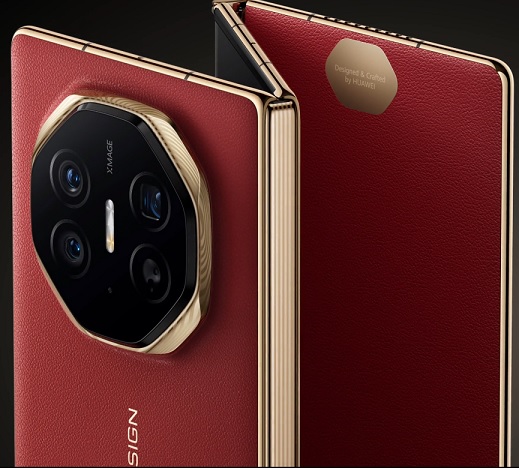
(Photo : Huawei)
Huawei launches XT
- Huawei aims to have 100,000 apps on its Harmony OS within the next six to twelve months amidst US sanctions.
- The company currently has over 15,000 apps but seeks more personalized and boutique apps to enhance the ecosystem.
- Huawei launched its OS five years ago after US sanctions cut off support for Google's Android, and has since developed an open-source version.
- Huawei's Chairman, Xu Zhijun, calls for patience with the system's immaturity, stating, "The more people use it, the more quickly it will become mature.".
In a recent announcement, Huawei, the Chinese tech giant, has set an ambitious target of having 100,000 applications on its Harmony operating system within the next six to twelve months. This comes as the company seeks to achieve self-reliance amidst the ongoing blacklist by the United States. Huawei Chairman, Xu Zhijun, addressed a conference on Saturday, stating that the company currently has over 15,000 applications based on Harmony that can meet consumers' basic needs. However, he emphasized the need for more personalized and boutique apps to enhance the ecosystem.
Harmony OS: Aiming for Maturity
Based on our analysis, for the Harmony ecosystem to be mature in meeting consumer needs, 100,000 apps is the milestone, and that is the key objective over the next six to 12 months, Xu said in a speech posted on the WeChat messaging app. This ambitious target underscores the urgency of developing home-grown technologies as China faces heightened tensions with the U.S. in areas ranging from trade to technology. The incoming U.S. administration under President-elect Donald Trump has signaled a tougher stance on China, further escalating the situation.
Huawei launched its operating system five years ago after U.S. sanctions cut off support for Google's Android. The Shenzhen-based company, which offers a range of products from smartphones to laptops, later developed an open-source version of the Harmony system. The U.S. sanctions have forced Huawei to expedite the development of its own operating system. Huawei has been forced to accelerate developing its own operating system, Xu said.
Harmony OS: A Call for Adoption and Patience
He acknowledged that while much progress has been made, an operating system's value is determined by its usage. For any operation system, no matter how advanced it is, it would be of no value if no one uses it. Xu expressed optimism that developers would work diligently to enrich the app offerings on Harmony. He also called on government agencies, state companies, and social organizations to adopt Harmony as their operating system at work.
Addressing consumers, Xu asked for patience with the system's immaturity, stating, The more people use it, the more quickly it will become mature. Huawei unveiled Harmony in August 2019, three months after Washington placed it under trade restrictions over alleged security concerns. Huawei has consistently denied that its equipment poses a risk.
No way back leads to victory, Xu said. Huawei will unwaveringly invest in developing the Harmony ecosystem, and strive to make the impossible possible. This situation is reminiscent of historical events where companies have had to adapt and innovate in the face of adversity. For instance, during the Cold War, many Soviet companies had to develop their own technologies due to trade restrictions. Similarly, during the U.S.-Japan trade war in the 1980s, Japanese companies had to innovate and develop their own technologies to stay competitive.









